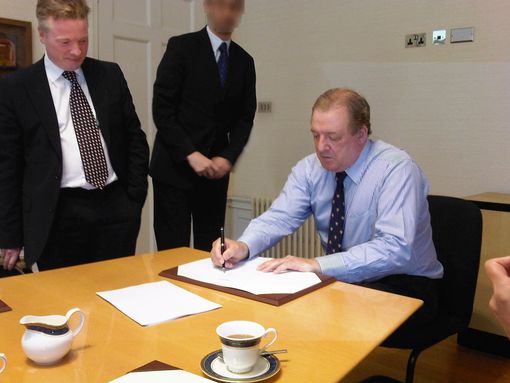If you are facing the possibility of being disqualified as a director, you need to receive the best possible advice and you need to receive it as quickly as possible. It is crucial to try and take control of the situation and this is easier when you take action earlier.
If you believe that you are under suspicion or that you may face allegations that could result in you being disqualified as a director, the sooner you work with the experts, the better your chances will be of reducing the potential punishment you may face.
Like all legal matters, it is imperative to work with experts in a chosen field. While finding a lawyer is always a great starting point, finding a lawyer with relevant experience is crucial, and this is where you should narrow your searching to lawyers that have experience of working in this manner.
A lawyer with relevant experience and expertise can save a great deal of time in a case like this, which may be one of the most vital elements in ensuring that you get the possible outcome.
There are a number of major areas why working closely with an expert in director disqualification is so important and they include:
They can take care of pre-issue correspondence
Long before any case goes to court, there will be a great deal of correspondence involved and you will need to provide a lot of information. Providing this information in a clear and concise manner, yet being as fully supportive of your case as possible, is crucial if you want to make a positive impression.
This is why there is a great deal to be said for having an expert involved as early as you possibly can because they will be able to take responsibility for all of the pre-issue correspondence that you may be issued with from the insolvency service, or from lawyers acting on their behalf.
They will assess the case against you
Just because there is a case against you doesn’t mean that you are automatically going to be disqualified as a director. Every case and claim has to be considered on its own merits, and this is where working with an expert in this field will ensure you receive the best possible advice.
If the case against you is weak, a reliable and reputable director disqualification lawyer will recognise this and they will help you to put up a robust argument that attacks the key points that have been made against you.
This will give you the greatest chance of bringing the matter to a close quickly and in your favour. This is the outcome that you should be aiming for and if the case against you is weak, a reliable and reputable solicitor will help you to achieve a positive outcome.
If the case against you is strong, the sooner you have a reliable and reputable solicitor working on your behalf, the better. There is a need to ensure that you receive the strongest level of support and guidance to ensure that you make the best possible case to retain your position.
It may even be that the case is so strong that the most important element of the service is aimed at limiting the penalty you face. When you work with an expert in this field, you will be able to make an informed decision about what your defence should consist of.
They will defend you against Secretary of State led legal proceedings
If official legal proceedings against you have been initiated by the Secretary of State, you need to be defended in the most robust manner. This is why calling on a professional in this field will provide you with the best level of service and support at all times.
A fully qualified director disqualification solicitor will also be able to negotiate any voluntary undertakings you may face, they will be able to recover costs if you are successful in defending your actions and they may even help you to obtain permission to retain the position of director even if you have been disqualified.
If you are facing this style of case, the sooner you receive the highest standard of director disqualification advice, the better.
Andrew Reilly is a freelance writer with a focus on news stories and consumer interest articles. He has been writing professionally for 9 years but has been writing for as long as he can care to remember. When Andrew isn’t sat behind a laptop or researching a story, he will be found watching a gig or a game of football.

